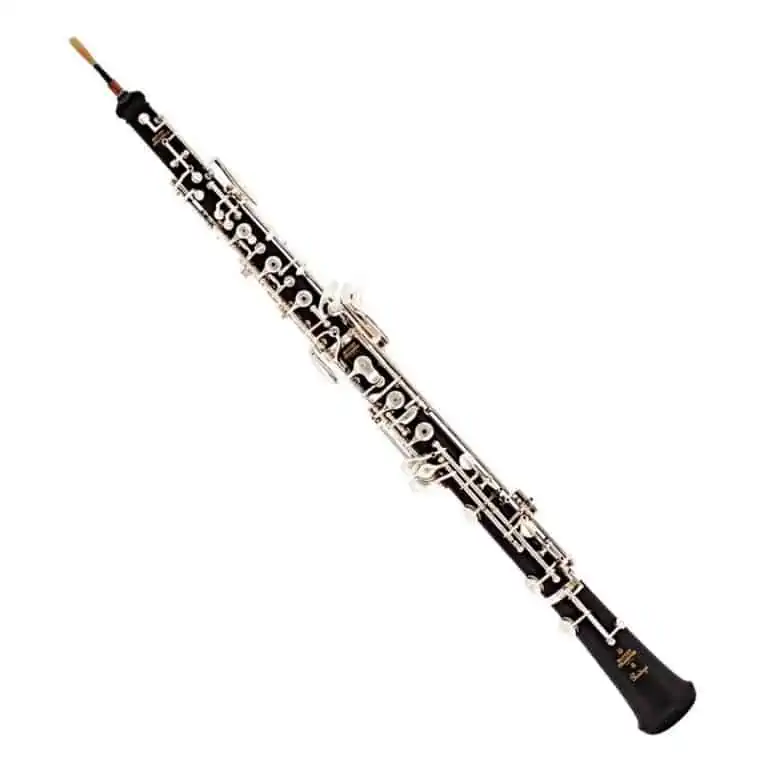Oboe Practice
Are you finding oboe practice tedious?
Practising can either be your best ally or your worst enemy when learning a musical instrument. Understanding this, a set of specialised and tried-and-true piano practice tips has been crafted for those diving into our introductory journey through the world of the oboe.

Why Longer Oboe Practice Doesn't Equal Great Practice
Practice. If you do it regularly enough, you will be great. You know this. So why is practice so difficult?
Motivation is vital. Without motivation, you’ll not force yourself to return to the instrument day after day. How do you get motivated?
By winning. Yes, that is correct. Winning. You are in continual competition with yourself, so when things go perfectly, you feel like you are winning. When you’re within this mindset, it’s effortless to practice. It’s the circle of life – winning a lot more gives you a lot more motivation, which means you practice far more. Practising more usually means you win more, as a result, it will give you more motivation. Which continues exponentially.
Therefore if it’s so easy, exactly why is practice still so difficult?
The answer? Because it’s not that simple! Just practising isn’t good enough. You can practice for ten hours daily and never improve.
If it’s not the quantity of practice that sets you in the circle of life, precisely what does?
The level of quality.
Practising for 15 minutes on a daily basis, targeted, beneficial excellent practice is much more beneficial than seven hours of unfocused, ‘auto-pilot’ practice.
So you only need top-quality practice in order to leap aboard the circle of life train?
Nope! Nothing is ever that easy. Incorporate quantity and quality, and you’ll finally be a first-class passenger.
Keep reading to learn how to buy your first-class ticket, and how to remain on the train for as long as you want…

Structure Your Oboe Practice
How much time should I practice the oboe for each and every day?
15 to 20 minutes is a good place to start, and probably not any longer than 45 minutes each time. After this amount of time, us humans tend to zone out – and therefore the practising ends up being a lot less effective. As a rule of thumb, once you feel your focus waning, stop. Always be pleased that you simply showed up to your practice session, and don’t worry the length of time you practice for.
How frequently should I be practicing the Oboe?
This one is a straightforward answer – practice daily. Like this, you’ll change your oboe practice into a routine. A fairly short, specific daily practice is a lot more valuable than twice every week an hour or so at a time. And bear in mind, if you’re wondering “but how can i find the time to accomplish 20 minutes a day? !? ” – just take some of your time and energy from social media over to the oboe. We do after all, spend on average 142 minutes on social media a day!
What times should you be practicing?
It makes no significant difference when you practice, simply just provided that you do practice. Test out building a predetermined schedule for yourself vs simply being ad-hok. Notice which options work best, and stay with it.
Oboe Practice Top Tips
1. Remove All Interruptions
This really is your time and energy, and you absolutely don’t need anyone annoying you. So ensure you shut down your tablet pc, laptop or computer, watch, and even more importantly mobile phone, to be as focused as you possibly can.
2. Get Really Comfortable
Over time, you’ll be spending an enormous length of time with your musical instrument, consequently, it’s really vital that you become as relaxed as possible. Ensure that you have some water, a pencil and a piece of paper for creating notes.
3. Setting Goals
What are you looking to accomplish? Attempt to establish a goal that you could accomplish as part of your practice session. Working with objectives, you’ll improve quicker and a lot more successfully.
Perhaps Monday you’ll study the 1st 12 bars/measures. Then Tuesday you’ll learn the final 12. Wednesday can be the tough little bit in the middle. Thursday could be reminding yourself of all things you’ve learnt until now, and Friday can be trying to play the parts minus the music (from your memory). Whatever you have to do, establish your objectives on paper and make them happen. So when you accomplish your ultimate goal, celebrate! I recommend a good bottle of red…
4. Become Welcoming With Undesirable Habits
A habit is a thing you habitually, or repeatedly do. And since we have been learning things, many of us usually do them wrong before we do them correctly. So I realise it sounds like common sense, but be sure you aren’t rehearsing your goof ups, otherwise they’ll become undesirable habits. And you know bad habits are difficult to eradicate!
So if you see a terrible habit showing out of no-where, shout out a nice big HELLO to it. Then swat it just like the most annoying fly.
The same thing goes for solving specialized difficulties with such things as posture and your technique. While it usually takes longer in advance, it will pay out dividends at a later time and will save you a ton of time.
5. Make Things Intriguing
Have you driven to a location, then when you arrived, you had simply no memory or recall about the trip. You drove completely on ‘brain auto-pilot’. The exact same thing can occur when practising the oboe.
If you practice the same way each time, your progress will slow, your motivation will shrink, and the oboe will end up a laborious task. You can actually beat this very little annoying fact by switching your practice methods.
This can be as simple as messing around with your eyes closed. Performing one hand only. Missing out every other note. Omitting every note that your thumb plays. Playing every little thing really quietly, or perhaps extremely noisy. The list is endless. Always be inventive. And whatever you decide to do – don’t ‘just’ play the same thing again, and again, and again…
6. Train Yourself
Most of us learn best whenever we have somebody over our shoulders, providing us with their suggestions. Sadly, if you do not own Amazon, you are not likely to be able to afford to pay for a private oboe instructor 365 days a year. But Mr Bezos is able to keep his squillions because we don’t need them. We have our own personalized teacher inside us.
To begin with, learn to hear. A lot of people forget to actively listen, however, it’s the easiest way to transform your playing.
Next, with all the miracles of modern technology, it’s now incredibly easy to record your playing. So get your smartphone out, record, and critique yourself.
And even when the world’s richest folks wanted to retain the services of my personal teacher, they couldn’t manage to pay for it!
7. Don't Begin At The Start
You read a book, you locate page one. It’s totally natural. You perform a sheet of music, you start at the start. Again, entirely normal. But for the purpose of practising, it’s not the best idea. You’ll turn out to be phenomenally proficient at the first few notes, and pretty dreadful at the rest. So change it up. Get started at the end, or even halfway through. Then tomorrow, opt for another random place to start your practice. But whatever you do, don’t always begin in the beginning!
8. Don't Cheat
We are all attracted to the path of least resistance. In music, that means enjoying the simple bits. When we find an effortless bit that sounds excellent, most of us tend to play it again and again. The trouble with this is that we don’t improve. It’s actually an awful practice approach. So skip the simple parts, and concentrate on the portions that you’ll have to work hard at.
Think logically now; which parts should you learn first? Yes, that’s correct. The hard parts. The simple parts will sort themselves out.
Go on then! Find those complicated pieces…
9. Try Out Your Skills
One of the greatest techniques you can learn is sight-reading. But precisely what is sight-reading? It’s playing anything that is put in front of you, instantly and without hassle. The objective isn’t to be perfect. It’s to get through it as best as you possibly can whilst trying to keep the rhythm.
10. Keeping The Flow
The metronome is there as your good friend, not foe. So use it and get to like it.
For much faster, tough sections set your tempo at half of the ‘finished’ speed. Practice the part on a daily basis, and each day boost the tempo by 5 points. You’ll have so gradually increased the tempo, that before you realize it, you will be at full speed.
Bonus Strategy: For faster areas, make an effort to get at ease playing the complex areas ten percent faster than you will need – in that way, whenever you get back to the speed you really want to perform it at, it should really feel nice and easy!
11. A Bottle Of Red
Keep in mind in number 3 I talked about a nice bottle of red? I thought this is vital enough to mention it twice!

Oboe Exercises
Exercises are very time-consuming. We have to do them in sports to warm-up, and playing the oboe is absolutely a sport for your fingers (and mind). There are many different exercises that strengthen your fingers and lungs, but the main ones are:
Pulse
Use a metronome to help you maintain your pulse as you play. Starting slower than the target speed and building it up gradually. It’s always interesting to hear where we naturally speed up or slow down when tackling different rhythms.
Rhythm
If you’re stuck with a rhythm, look carefully at it. Try to understand how it’s mathematically formed. Makeup words to fit with it, if that helps you remember. Listen to recordings so you can learn it by ear. You could also try Kodaly musicianship which involves clever ways of vocalising rhythms.
Counting
Mark on the music (using a pencil) where the main beats are. Then without playing, just miming with the fingers, go through the troublesome phrase really making the beats conscious. You can tap the pulse with your foot or use a metronome. Check your fingers are moving when they should. Then when you play it for real, your finger muscles will remember the correct way.
Planning your breathing
Some people prefer not to think too much about where they breathe, and others find it a real comfort to have it planned. The main breathing points will tend to be between each phrase and should feel very natural. Just like when singing or speaking. Sometimes the phrase marks are already in the part for us. But in particularly long tiring passages, we’ll need to take more breaths in and out. This might mean breaking a slur at times, but as long as the flow and shape of the phrase continue, you can sneak breaths almost anywhere. So it’s helpful to try out options, decide on the most comfortable and to mark these in the part so that you can do it the same way each time.
Fingerwork in difficult passages
There’s always a tricky bit that we dread tripping over in the music, so it’s worth breaking it down and solving it, otherwise you’ll always be scared of it. Play through the selection of notes slowly and smoothly. Remove the rhythm if there is one. Now change the pattern to a dotted rhythm, then a reversed dotted rhythm, or uneven triplets (‘doo-be, doo-be, doo-be’). If the selection of notes is in pairs, try them in threes or fives. Notice any patterns in the phrase that will help to mentally organise it. Then gradually transform it back to right rhythm, articulation and speed, and connect it to the bars either side. Is it better?
Stamina
Breaking a piece down and dividing it into smaller chunks is always a good idea at first so that you can perfect each section. Then as you become more confident with it, these chunks can be connected together, so two chunks become one. Gradually you’ll see the whole piece as fewer sections and your body will remember how much effort it takes to tackle each one. Eventually, you’ll not only be able to pace yourself better through it all, but you’ll also be stronger from the accumulated practice of each chunk, gradually improving your stamina.
Overall Shape
Now you’ve worked on the details, take a step back and view the whole piece. Where are the high points and low points, louds and quiets. What is the overall journey of the music? Does it make you imagine any visual ideas or characters? Make sure you tell this story when you play it.
Oboe Practice Bonus Tips
1. Try And Stay Consistent
Your brain learns every time you are doing something totally new. It makes a neuron, like a tiny branch of a tree. Anytime you repeat the very same thing, with absolutely no differentiation, that branch gets a little more robust. Should you do the task enough times, in precisely the same way, that branch turns into a solid arm. This is basically the stage where your mind and body can do a thing ‘without thinking about it’.
However, each time you modify something, a whole new branch is created. Should you play the very same passage of music four times, and each time you use a different fingering or are not completely consistent, you’re developing four branches.
So is that a concern? Yes! A branch is a choice. Whenever you come to a performance and get to the related part, if the brain has a choice of many different neurons to choose from, it could possibly choose the completely wrong one. It can pick the one that has a mistake in it. For once, the choice isn’t a good thing. Should you have just one neuron that is correct, the brain offers no alternative – it provides only one option – the right one.
So always be consistently accurate from the very first time of playing something. Understand stuff at a tempo it is possible to perform well. And take note of your neurons!
2. Recommended Reading
Here are some great books that really helped me when I was starting out and I regularly recommend them to students to this day.
Music Practice: The Musician’s Guide to Practicing and Mastering your Instrument like a professional
I also highly recommend you include How to Read Music in 30 Days in your must-read list. If haven’t already read our guide on How To Read Sheet Music, then do check that out as well.

Oboe Practice - Summary
Should you have learned one thing from this webpage, it should be:
Don’t leave practice to chance. Structure it. Always be aware and do not go on ‘auto-pilot’. Shorter is completely sweeter. Print off this list and skim it at the beginning of a week. And most importantly, have that corkscrew prepared…
About the Author
Katie Bennington
Katie Bennington enjoys a varied freelance career playing regularly with orchestras around the country such as the London Symphony Orchestra, Royal Philharmonic Orchestra, Aurora Orchestra, ENO, ENB, and CBSO. She is also a keen chamber musician and enjoys working in collaboration with artists from different genres.
She is a Masters graduate of the Guildhall School of Music and Drama where she studied oboe with Richard Simpson, Gordon Hunt and David Walter, and cor anglais with Jane Marshall. She then went on to take part in the LPO's Foyle Future Firsts Scheme and in 2010 was a member of Southbank Sinfonia. She was a British Double Reed Society prize winner at the Barbirolli International Oboe Festival and Competition in 2009. At GSMD she was a Needlemaker’s Woodwind Prize Finalist in 2008, and in Dec 2007 she won the Slaughter and May Musician of the Year Award. She plays on a Sound Alchemy Enigma oboe and a Loree Royal cor anglais.
Other posts by this author
She is a Masters graduate of the Guildhall School of Music and Drama where she studied oboe with Richard Simpson, Gordon Hunt and David Walter, and cor anglais with Jane Marshall. She then went on to take part in the LPO's Foyle Future Firsts Scheme and in 2010 was a member of Southbank Sinfonia. She was a British Double Reed Society prize winner at the Barbirolli International Oboe Festival and Competition in 2009. At GSMD she was a Needlemaker’s Woodwind Prize Finalist in 2008, and in Dec 2007 she won the Slaughter and May Musician of the Year Award. She plays on a Sound Alchemy Enigma oboe and a Loree Royal cor anglais.
Uncover What 4 Items I’ve Discovered This Week
Each week, on a Friday, I distribute the 4 Feature Friday e-mail. It’s a very simple idea that contains four excellent things I”ve uncovered that week.
As long as it’s music associated, it could land in the email. Completely new tunes, tricks, goods, critiques – anything at all.
But you’ll only get yourself a copy of the email if you gain access below.
Read the next post in this series:




